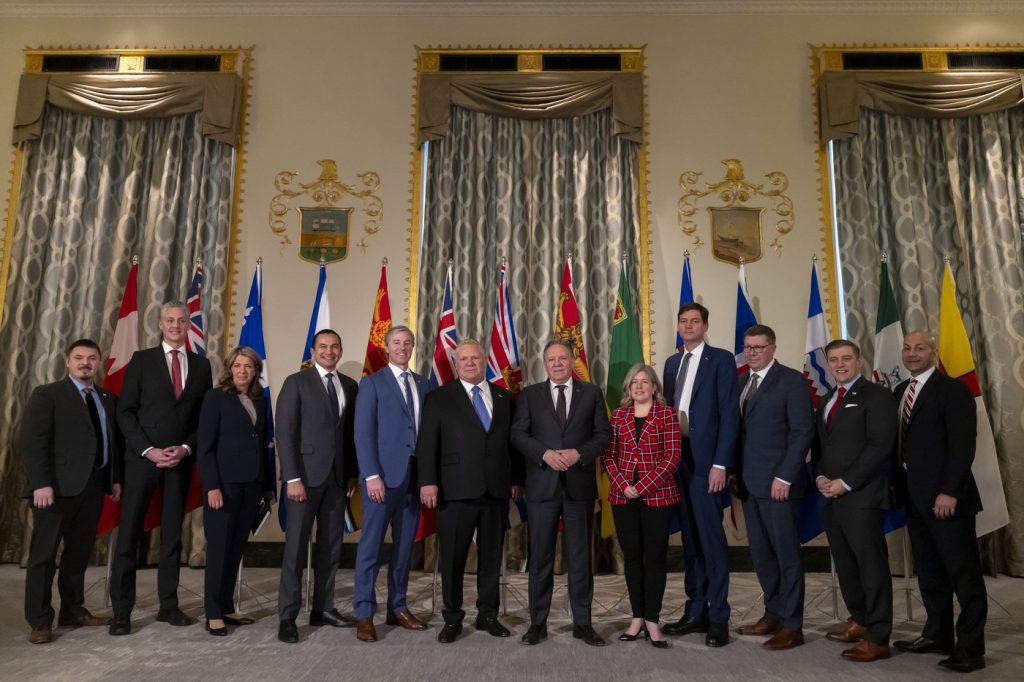On February 12, 2025, in Washington D.C., the premiers of Canada's territories underscored the strategic importance of Northern Canada in promoting continental security, diplomacy, and economic collaboration. This meeting comes amid heightened tensions with the U.S., as Canadian leaders engage in a diplomatic effort to counter proposed U.S. tariffs that threaten Canadian goods.
Yukon Premier Ranj Pillai, Northwest Territories Premier R.J. Simpson, and Nunavut Premier P.J. Akeeagok participated in a discussion at the Wilson Center, focusing on future collaborations between Canada and the United States within the Arctic region. Their presence highlighted a concerted effort by all thirteen of Canada's premiers in Washington for the first time in history, aiming to address concerns over U.S. President Donald Trump’s recent tariff threats.
On the preceding Monday, President Trump signed executive orders that implemented a 25 percent tariff on all steel and aluminum imports into the United States, which includes Canadian products. This decision comes on the heels of a previously announced one-month delay on existing tariff threats that encompassed 25 percent tariffs on all Canadian and Mexican imports, alongside a reduced 10 percent levy specifically for Canadian energy products.
The context surrounding these developments reveals an increasingly assertive stance from President Trump regarding Canada. His repeated references to the notion of the U.S. absorbing Canada and Greenland suggest a particular interest in exploiting Canada's vast natural resources. This rhetoric has added urgency to the Canadian premiers’ advocacy efforts in Washington, aimed at mitigating the potential economic impacts of such tariffs.
This diplomatic mission signifies a critical moment for Canadian provincial and territorial leaders as they seek to build stronger relationships with their U.S. counterparts. The discussions at the Wilson Center not only strive to address the immediate economic threats posed by tariffs but also aim to solidify long-term collaborative frameworks that could define the Arctic's future and the broader Canada-U.S. relationship.
As these events unfold, the stakes are particularly high for Canadian provinces that depend heavily on trade with the United States. The coordinated presence of all thirteen premiers in the U.S. capital symbolizes a united front in addressing these trade issues and emphasizes the importance of a collaborative approach to address both economic and geopolitical challenges in the Arctic region.
In summary, the meeting of Canadian territorial leaders in Washington serves as a vital effort to foster diplomacy and collaboration between Canada and the U.S. while navigating the complexities of international trade relations under the current U.S. administration. The outcomes of this engagement may have significant implications for the economic future of both nations, particularly in relation to security and resource management in the Arctic territories.










